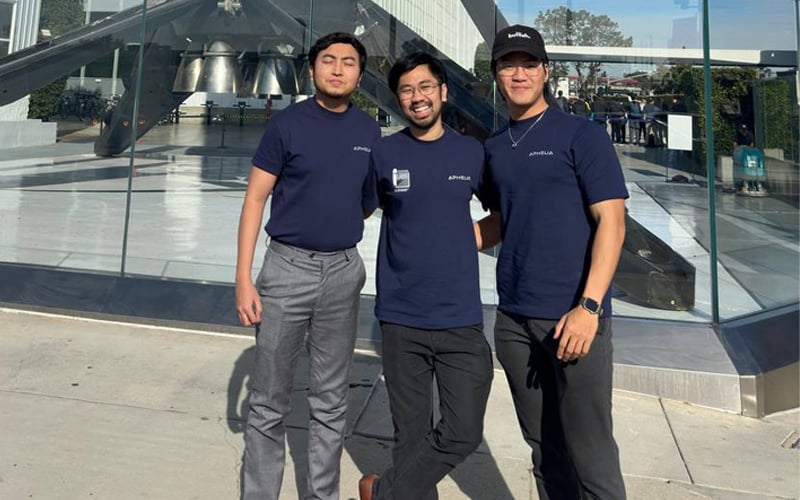
PETALING JAYA: A trio of 29-year-olds has developed a wireless charging technology for more efficient use in space and on the moon, demonstrating the capability of Malaysians on the international stage.
The wireless power bank for satellites was developed by Muhammad Kamil, Razlan Dhamir Hamdan, and Lee Guo Rui, who have backgrounds in software engineering and marketing.
The project qualified for the Dec 1 Startup World Cup, an initiative that gathers start-ups from around the world.
It also caught the attention of Astrolab, a company which inked an agreement with Elon Musk’s SpaceX to send its first rover to the moon on a Starship flight, projected to take place in two years.
The idea of the wireless power bank for satellites began with Razlan’s interest in space, inspired by Neil Armstrong’s success as the first person to land on the moon. Muhammad and Lee, also known as Justin, joined in.
Razlan, a Universiti Teknologi Mara graduate, said the project as a whole involved building a charging station to connect satellites, but without the use of wires over a distance of 10km.
Instead, radio signals are used, similar to wirelessly charging a smartphone using a power bank.
“Conventional technology is very large and not energy-efficient because, for example, if you want to send 100 watts of power (to space), the customer may not receive it fully. We, on the other hand, can channel all of it,” Razlan said to FMT.
The locally developed wireless charging technology allows energy to be transferred through radio signals.
Muhammad added that their technology had attracted the attention of Astrolab, which signed an agreement with SpaceX to carry its first rover to the moon in 2026.
“We have an agreement, and hopefully we can do ‘moon testing technology’ there. Also, by then, before we can get customers, we need to test out our technology in that vicinity,” said Muhammad.
He said their efforts could dispel the notion that Malaysians merely use technology without contributing to its advancement.
“A recurring notion is that ‘Malaysia is a technological user country, not a technological developing one’.
“This is very concerning because we only want to buy technology that operates in Malaysia. Not many Malaysians are brave enough to develop their own technology,” said Muhammad.
“For me, my aspiration in creating this (technology) is to encourage more people to develop their own technology. If we dare to create something for space, hopefully, others will also be willing to create, even if it’s just for Earth,” he added. - FMT



No comments:
Post a Comment
Note: Only a member of this blog may post a comment.